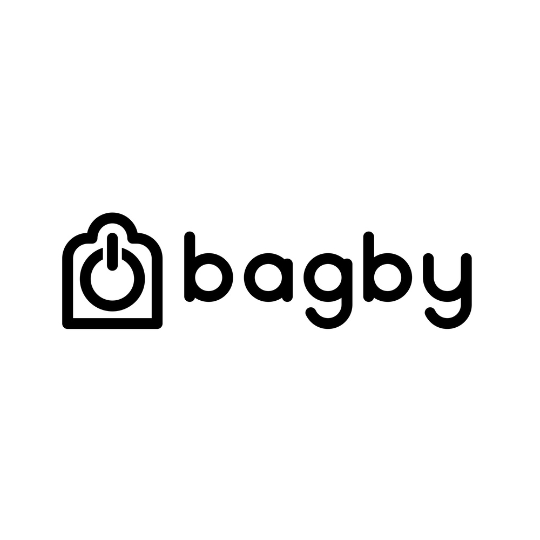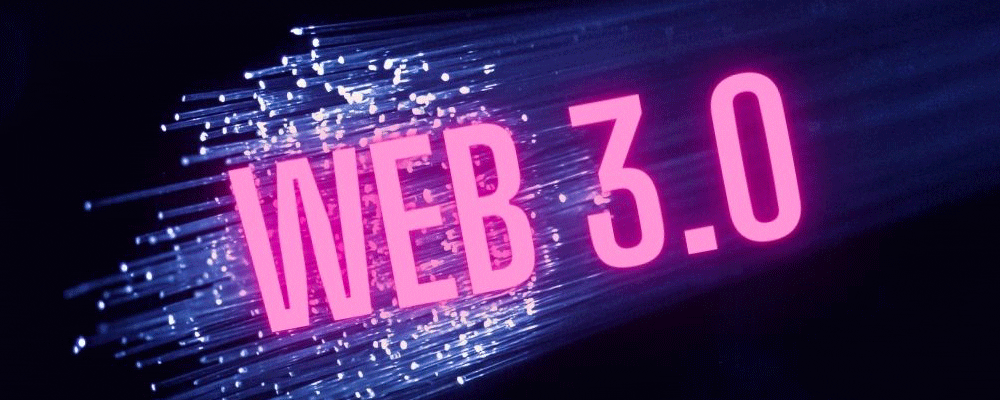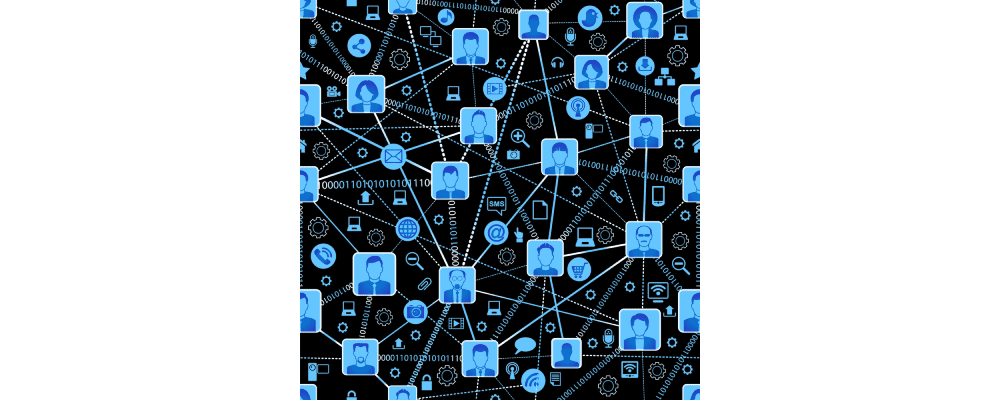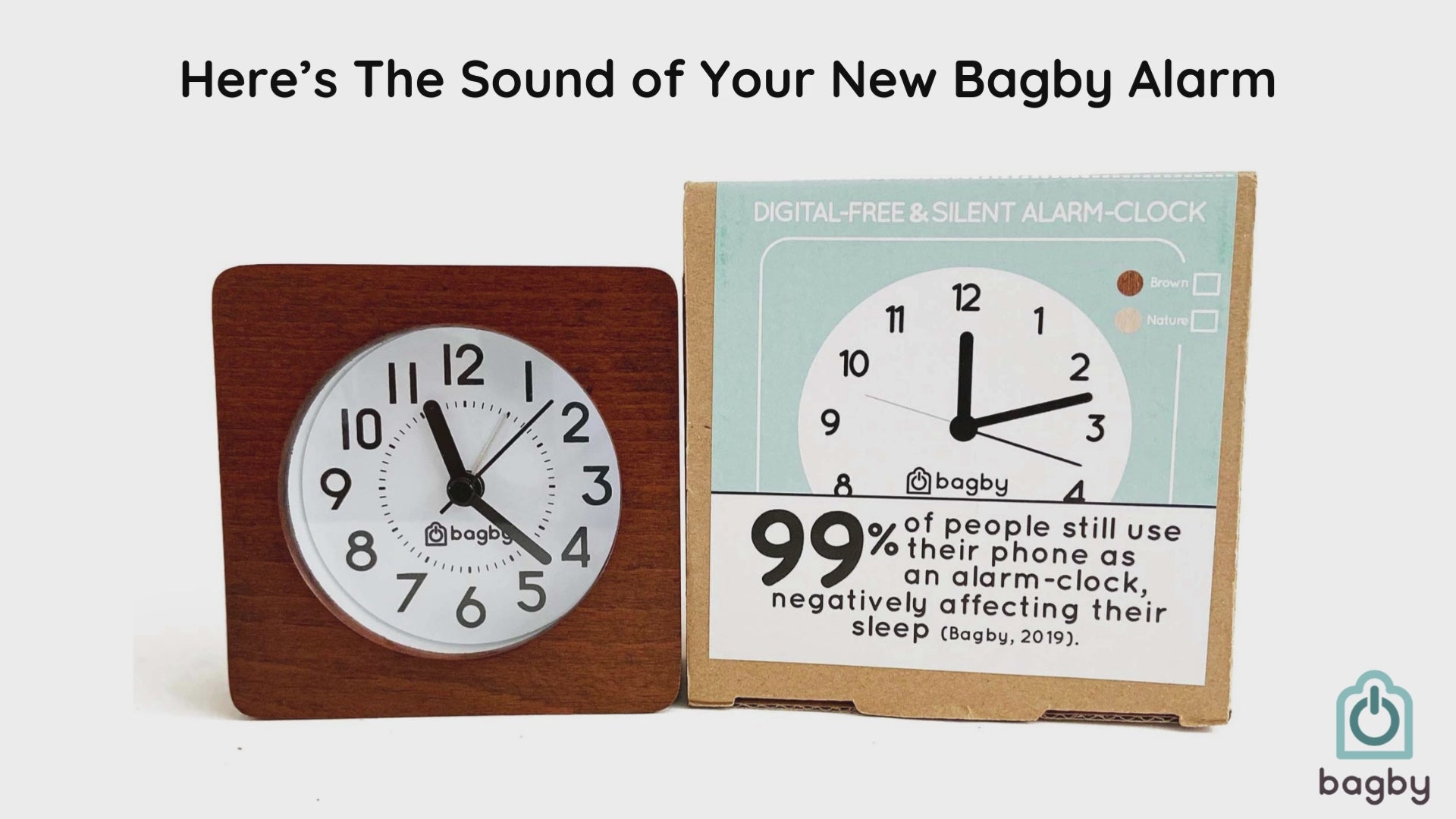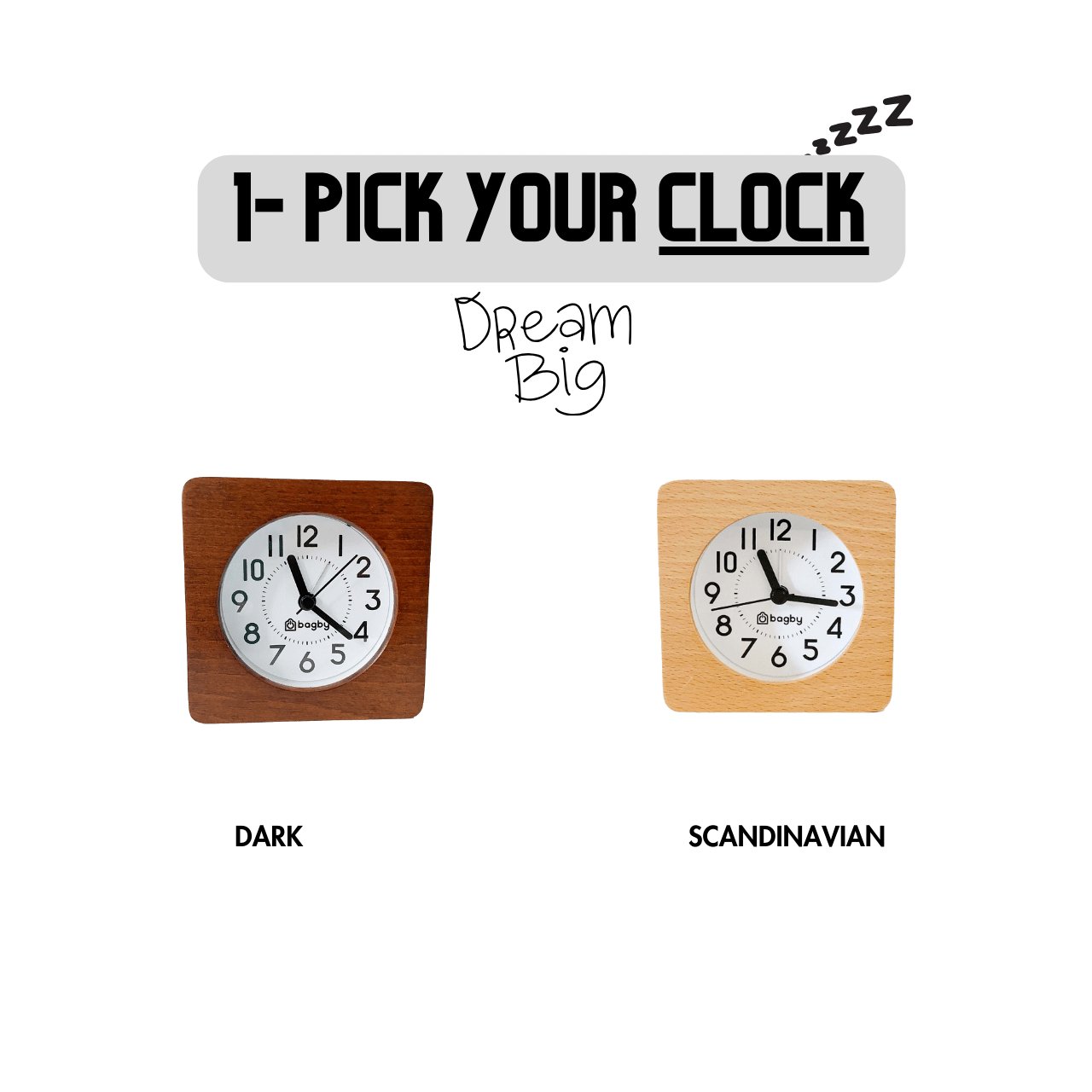So, what will the future be like with the internet? Will it bring more prosperity and happiness to humankind, or do the opposite? Let’s find out.
The Internet
Although the internet first emerged in the 1960s as a way for government researchers to share information, January 1, 1983 is considered the official birthday of the internet. That’s because 1983 was when ARPANET (Advanced Research Projects Agency Network) was changed into a new communications protocol called TCP/IP.
This was the birth of Web 1.0, which allowed different computers on different networks to communicate with each other. Web 1.0 dominated government and private sectors, changing how people communicated and transferred and consumed data.
It went on like that for 21 years, until the world was introduced to a new version of the internet—the web 2.0.
Web 2.0 brought social media into the picture, giving people a new way to communicate.
Here’s the difference between web 1.0 and web 2.0.
| Web 1.0 | Web 2.0 |
| Read-only | Read/write collaborate |
| Web as a reading platform | Web as a publishing platform |
| Developer authorship | Public authorship |
| Individual intelligence | Collective intelligence |
| Software applications | Web as a software platform |
| Commercial/proprietary | Open source/shared |
| Static | Dynamic |
| Impersonal | It knows you & your needs |
| Restricted collaboration | Collaborative |
| Short-tail | Long-tail |
| Official releases | Constantly versioning |
| Text-based | Multimodal |
| HD as a storage platform | Web as a storage platform |
| Lecture | Conversation |
Although web 2.0 is doing a pretty good job, it’s not tending to all human needs. So, slowly the world is moving toward web 3.0.
But regardless of the version of the internet, we can say for sure that the internet has changed our lives significantly. And for the most part, those changes have been good. Here are some of the things that the internet gave us.
Enhanced Communication
The internet has had a revolutionary impact on communication since the mid-1990s. Here are some of the things that we have today, thanks to the internet.
- Near-instant emails
- Multimedia messaging
- Voice over Internet Protocol (VoIP) calls
- Two-way video calls
- Blogs
- Discussion forums
- And social networking.
Eased Everyday Things
Don’t want to cook? Well, you can order food through one of the many food delivery apps. Need a change in your wardrobe? You can always go to your favorite brands online and choose from thousands of options.
Education, entertainment, and even keeping up with what’s happening worldwide; the internet brought everything right into our pockets.
Increased IT Capabilities
The internet not only gave a technological boost to research centers and universities, which it was originally designed for, but it also opened up the scope for private enterprises, institutions, and public entities to grow tremendously.
Today, the internet is not just a state-controlled project but the largest global network, connecting 4.66 billion people around the globe.
The Emergence of Web 2.0
Enhanced communication, increased comfort, and a boost in IT capabilities are just the tip of the iceberg of what the internet has given us so far. When the world shifted to web 2.0, it actually gave people control of what happens on the internet.
See, web 2.0 doesn’t refer to any technical upgrades on the internet. It’s just a shift in how we started using it in the 21st century. The physical infrastructure, besides some minor modifications, remains the same.
The new version of the internet allowed us to participate in whatever’s going on, rather than just be passive viewers who take in information. Web 2.0 gave birth to user-generated content, or UGC.
Freedom of UGC
User-generated content, sometimes also known as UCC (user-created content), is any content—images, videos, texts, and reviews created by the public and not brands. Social media platforms are the biggest promoters of UGC.
Why is it so important?
Social media platforms give people the freedom to share their thoughts, communicate with the masses, and influence others.

And that’s really important because this gives people the ability to show their realities as they see them at ground zero, which would have never been possible with our older ways.
But, as the saying goes, every rose has its thorn. Social media also has a bad side, which has caused its users to face several problems. Have a look.
The Focus Has Shifted
The primary ambition of social media platforms was to connect people around the world. And seeing how much importance social media has in our lives today, I’d say mission accomplished.
But today, connecting people is a mere fraction of what social media does. Since most social media platforms rely on advertisements for revenue generation, keeping people on their sites for as long as possible has become their primary purpose.
And though the strategies they use are excellent for the companies, they’re not nearly as good for the end-users, say experts.
Studies show that prolonged social media use causes problems like:
- Sedentary lifestyle
- Virtual socializing
- Low emotional intelligence
- Decreased attention & focus
- Chronic stress
- Anxiety, depression, and more.
You can learn all about the tactics tech companies use, their effects, and how you can protect yourself and your loved ones in my separate in-depth post, “Social Media Algorithms.”
Moving Towards Web 3.0
Web 3.0. has been making the headlines all over the news and the internet for the last few months. If you’re fairly active on the internet, I assume you’ve already heard of this. If you haven’t, here’s a quick explanation of what web 3.0 is.
Just like we shifted from the read-only web 1.0 to web 2.0, which let us immerse more into the virtual world, web 3.0 is also a huge shift that will change the way we use the internet.
In short, it’s an upcoming third generation of the internet which will be much more realistic, with enhanced features like immersive virtual reality, decentralized data networks, advanced artificial intelligence, and more.
When we say web 3.0, many people immediately think of the metaverse. But web 3.0 is not just about this one thing. It’s set to bring several changes, making our society much more efficient and connected to technology. Here are some of the changes that experts predict web 3.0 will bring to the table.
Rise in IoT
The Internet of Things (or IoT) has been developing for several years now. In fact, 5G technology was built from the ground up to support the IoT infrastructure.
IoT simply refers to the billions of devices, appliances, and objects connected to the internet through wireless networks. These devices talk to each other to enhance your user experience with gadgets, appliances, and anything wirelessly connected to the internet.

I have written a separate in-depth post on IoT and its role in our lives. So, give it a read.
Here’s a quick example of how IoT is being designed to work.
Imagine you’re hosting a meeting for hundreds of people from all around the country. You simply send a tracking link to your guests’ phones, and once they click the link, your system will start tracking the attendees.
It will track things like when they arrive in the city and reach the conference hall.
Now imagine as soon as they land in the city, your system will send a welcome message on their phone and alert the cab service to pick them up.
Once they reach the venue, and at the registration desk, the registration machine will start printing their badge automatically.
IoT is being designed to use machine-to-machine (M2M) communication tech to interact with other machines without any human input.
Now, this level of intelligence in IoT has so far been just a concept, but web 3.0 can make it possible.
More Advanced AI
Web 3.0 focuses heavily on artificial intelligence (AI) and machine learning (ML). With this version of the internet, we can make machines more natural and human-like. This means we can actually design them to understand and work with us on a level that only a human can do right now.
And this is great for IoT as, because of advanced AI, your gadgets, appliances, and other wireless devices can tend to your needs more efficiently.
Blockchain Technology
Blockchain is a futuristic technology that provides decentralized access to data without the risk of any tampering or secrecy. Let me explain.
To understand blockchain tech, you have to first understand what a database is. A database is basically a way to store information in a proper structure. Hence, it’s easier to access it in the future.
But, right now, the majority of the databases that we need access to in our daily lives are controlled by single entities like companies, governments, and other institutions. This means the data stored can be hidden and changed on the controlling entities’ command.

Blockchain is decentralized. This means no single entity controls the data that’s going through the internet. All the data gets stored in a series of computers worldwide called nodes.
It’s just like the peer-to-peer network in Torrent. If you have ever used Torrent to share files within a large group, you know exactly what I mean.
The most important thing about blockchain is that it’s next to impossible to manipulate the data once it gets on the internet. Here are some applications of blockchain tech we can forsee in the future.
- Secure sharing of medical data
- NFT marketplaces
- Music royalties tracking
- Cross-border payments
- Real-time IoT operating systems
- Personal identity security
- Anti-money laundering tracking system
- Supply chain and logistics monitoring
- Voting mechanism
- Advertising insights
- Original content creation
- Cryptocurrency exchange
- Real estate processing platforms
An Increasingly Virtual World
Web 3.0 is predicted to replicate the real world in its design. And the ever-developing VR technology can augment the web. This means that web 3.0 will redefine how we experience the virtual world.
Experts predict that both worlds, real and virtual, will eventually be merged into a single, interconnected continuum. Well, not in a sci-fi movie sense, but virtual reality will be a significant aspect of our lives. You can read more about it in my post “Metaverse,” where I’ve explained how virtual reality can change how we work, communicate, entertain, and more.
Nokia Says 6G Will be Here By 2030
On May 24, 2022, Nokia CEO Pekka Lundmark stated that the 6th generation of wireless networks will hit the commercial market by 2030.
While we’re still in the process of launching 5G on a massive scale, tech companies have already started thinking about the next generation. It’s been projected that 6G will reach a theoretical speed of up to 1 Terabyte per second (TBps).
Lundmark’s statement aligns with a prediction made by Huawei’s CEO Ren Zhengfei, who, in 2019, said that 6G technology was still “ten years out.”
“We have parallel work being done on 5G and 6G, so we started out 6G a long time ago,” Zhengfei said on a panel hosted by CNBC in 2019. “It’s in its early phase, and there’s still a long way to go before commercialization.”
But what do we even need 6G for? 5G is pretty fast. In fact, isn’t 4G fast enough for most internet users?
5G Was Built to Support IoT—What’s 6G for?
Although improving your internet speed is one of the goals, 5G wasn’t built from the ground up for this sole purpose. The main goal behind the change in our wireless infrastructure is to support the Internet of Things (or IoT).
I’ve written a separate in-depth post explaining what IoT is and how it will effect your life. Give it a read if you want to know more.
So, after connecting every piece of technology to the internet with IoT, what’s there left to do for 6G?
Lundmark said that, with the introduction of 6G, the digital world will finally be on par with the physical world. And technologies like the metaverse will gel well with 6G.
He also mentioned that by the year 2030, smartphones as we currently know them will become a thing of the past. Instead, embedded chips on our bodies will replace the digital communication we have through smartphones.
This may sound a bit far-fetched, but people are actually working on this kind of technology as we speak. Take Elon Musk’s Neuralink, for example. Neuralink is already working to develop a device that connects a human brain with a computer.
But, It’s Not All Good, Experts Say
As with all technological advancements, web 3.0 will bring many benefits to humankind. But this isn’t without any consequences. Let's take a look.
Decentralized Internet: Hard to Regulate
Even though a single entity doesn’t own the internet, a handful of corporations exercise enormous control over the majority of the internet’s physical infrastructure and things that take place online.
Decentralization is a way to circumvent mass surveillance and prevent tech giants from having a kill switch to an enormous chunk of the internet.
But the problem is, if decentralization really happens on a huge scale, it will make it immensely hard to regulate the internet. So, even though decentralization will guard people against government censorship and break corporate control over our lives, it’s not necessarily a panacea.
Some experts believe that decentralized internet can give rise to cybercrime, money laundering, online abuse, and many other things.
Tech Companies Could Have More Control
While decentralizing the internet may be a good idea, the outcome totally depends on the players that reach there first.
For example, we talk about the “open and decentralized” metaverse, but we all know that Facebook recently rebranded itself as Meta and hired 10,000 people to work on projects around the metaverse. Needless to say, they are the early players in this game. And undoubtedly, many are following in their footsteps.
As web 3.0 integrates with our lives more, the amount of personal data we share on it will also increase considerably. And suppose we’re using services like Meta’s to access the metaverse. In that case, the outcome will be no different than what it is now—basically defeating the purpose of a decentralized internet.
Metaverse May Not After All Replace How You Work
One of the most important things that Mark Zuckerberg mentioned while unveiling Meta, the new name for his company, was that the metaverse was set to revolutionize the way we work. But recent studies have suggested that using VR for work not only decreases productivity but can also give rise to problems like concerning levels of simulator sickness, migraines, nausea, and anxiety. Have a look.
The Research
This paper from Coburg University, Germany, reports on a week-long study in which the researchers asked 16 individuals to work as they usually do, except inside the metaverse.
For this, they used Oculus Quest 2 VR headsets and a Logitech K830 keyboard with an integrated trackpad.
The subjects worked their regular 8-hour days, with a standard 45 minutes of break time.
After the end of the study, the participants compared their VR working experience with working in a physical environment. Here are the findings.
- All subjects felt that their task load had increased
- Their frustration levels shot up by 42%
- Negative affect (the experience of negative emotions) was up by 11%
- Eye strain was up 48%
- And finally, their anxiety levels went up by 19%
Besides these, the researchers also found that the participants’ mental well-being had decreased by 20%.
As for their productivity? It diminished. All of them reported that their workflow went down by at least 14% and productivity by 16%.
Soon, People Will Leave the Internet – Says Prof. Geert Lovink
Social media, a technology that once gave the masses the ability to connect with the world and voice opinions without government or media filters, is now on the verge of becoming a surveillance and control tool, Prof. Geert Lovink of Amsterdam University says.
With the perspective that the internet is broken, Prof. Lovink has been an internet critic for the past 30 years. He used to believe that the internet could and needed to be fixed.

But now, he exclaims that the internet is beyond repair. And according to him, soon, people will start leaving social media – the very heart of the internet – because of what it has become.
Besides the range of psychological effects that tag along with the modern-day internet, social control is increasing, and users are being closely monitored, he asserts.
“Repercussions are also to be expected here as control becomes increasingly more sophisticated. In China, it’s already the case that you can’t board a train if you have a ‘wrong’ opinion. In the United States, you have to share all of your social media profiles if you want to apply for a visa. Things don’t seem to be so bad in western Europe yet, but your online activity is so traceable and visible now that there’s a real possibility that, at a certain point, people will no longer be able to travel or get a mortgage or insurance.”
So, has the internet reached the point of no return? Has social media lost its true meaning?
My Opinion
I agree that social media isn’t what it was originally meant to be. But I think the majority of people are far away from leaving the comfort of social media. Not because it’s still a valuable tool to connect with the world but because it’s just too addictive to leave.
I have discussed this in-depth in my post, “Tech Companies Have Successfully Hacked Our Evolution-Based Brains.”
This is why, instead of waiting for the demise of social media, we should focus more on building a healthier relationship with it.
Visit the Healthier Tech Blog for more information.
We Can’t Stop Technology from Advancing
Web 3.0 can be both good and bad. Decentralized internet can be both good and bad. Metaverse can be both good and bad. One thing is for sure: we can’t stop technology from advancing.

And even trying to do so would be a bad idea because technology makes us the advanced species we are today. And we certainly wouldn’t want to give that up.
So, what can you do?
Focus on Now
See, even though we have an idea of what our future with the internet will be like, one thing you need to realize is that we’re not there yet. And we won’t be for many more years.
So, what you need to do is focus on now. Because there are things right now that need your immediate attention.
Healthier Relationship with Technology
Although our current technology has made our lives much easier, it’s also the root cause of several physical and mental health problems in the general population.
And though we can’t quit using technology, we can absolutely build a healthier relationship with it. Read my post “Gadgets are Addictive” for more information.
Final Thoughts
The progression of web 1.0, then 2.0, and now web 3.0 proves that technology is ever-evolving—in many ways for our own good. And even though technology has a bad side, you need to realize that, at the core, you’re in control of the tech you use and not vice versa.
If you don’t give in to everything tech offers, and if you do the right things while using it, you’ll be fine.
And what are these “right things?”
Well, learn from the experts. We recently launched season 2 of “The Healthier Tech Podcast,” where experts from several industries talk about optimizing our relationship with technology and living a safer, healthier life. We’re available on all major platforms, so give it a listen.

